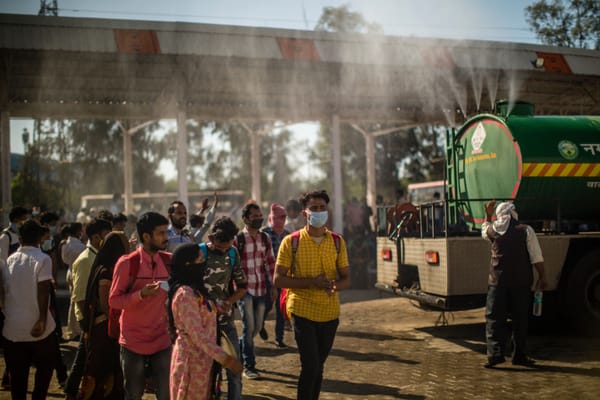On March 24, 2020, India’s prime minister, Narendra Modi, issued an emergency decree to combat Covid, placing his entire country under lockdown with just four hours’ notice. At the time, The New York Times noted this was “the biggest and most severe action undertaken anywhere to stop the spread of the coronavirus.” The sheer scale and brute force of India’s lockdown set a new precedent and influenced other countries across the Global South to do the same, sometimes regardless of documented Covid spread. Following Modi’s decree, Angola entered lockdown on March 27, Ghana’s main cities shut down on March 30, and Sierra Leone closed its airspace on March 31. The lockdown approach pioneered in Wuhan, China, had gone global.
“Experience of lockdown in poor countries offered evidence against attempting it again.”
Modi’s announcement ran contrary to 2019 World Health Organization advice on pandemic policy, which had noted that there were serious ethical considerations around the restriction of internal movement, “particularly in vulnerable populations such as migrant workers”—of which there are tens of millions in India. The prior experience of lockdown in poor countries also offered evidence against attempting it again. When a mass quarantine had been trialed in Sierra Leone and Liberia during the Ebola epidemic in 2014-15, it led to riots in the Liberian capital, Monrovia, and was deemed ineffective by organizations such as Médécins sans Frontières and by academic research. Moreover, as initial reporting made clear, it seemed unlikely that a country like India, with a median age of 28, would suffer as much from the novel coronavirus as nations with older populations.
The outcomes of this worldwide experiment on the global poor are now clear. In India, they have been documented by the writer Kunal Purohit: 230 million Indians have been pushed deeper into poverty; two-thirds the country’s small and medium enterprises had to shut down; and by March 2022, 6 million of them, or around 10 percent of the national total, had closed. Two recently released films about India’s lockdowns, Bheed and The Children of Nowhere, reveal in heartrending detail the appalling brutality of the policy and the catastrophic effects on migrant workers and young people deprived of education.
